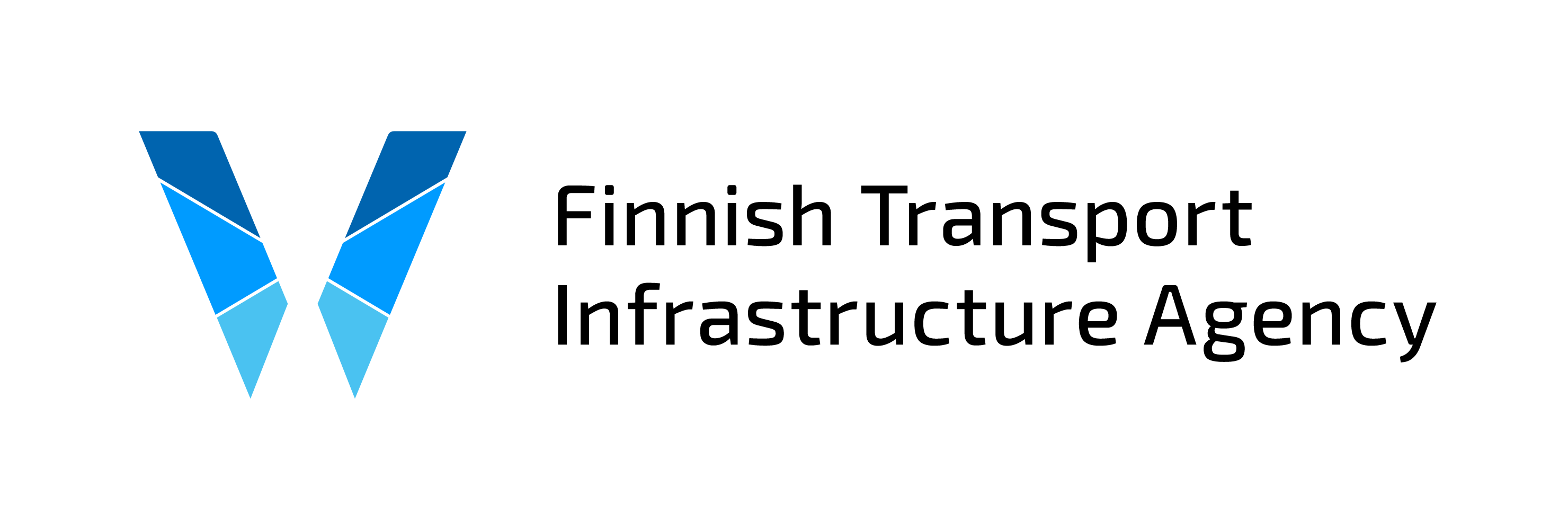Whistleblowing channel
As a part of securing an open and transparent operational culture, The Finnish Transport Infrastructure Agency has implemented a whistleblower channel.
Whistleblower protection
Whistleblower protection safeguards people who report certain types of misconduct. In this case, a ‘whistleblower’ is a person who, in the course of their work, discovers a breach of European Union or national law concerning public procurement or traffic safety, for example, and reports the breach via a reporting channel. Reporting these breaches is important to prevent threats and serious harm to the public interest.
Whistleblower protection allows people to safely report breaches without having their identity compromised. The whistleblower’s identity is treated as non-disclosable information in the subsequent processing of their report.
Whistleblower protection is based on Act on the Protection of Persons Reporting Infringements of European Union and National Law (the Whistleblower Act) and the EU Directive on whistleblower protection.
Whistleblower protection prohibits retaliation against whistleblowers. For example, an employer may not worsen a whistleblower’s terms of employment, dismiss them, or lay them off because of their report.
General requirements for receiving whistleblower protection
- At the time of the report, the whistleblower must have a legitimate reason to believe that the information concerning the breach is true.
- The information concerning the breach must fall within the scope of the Whistleblower Act.
- The whistleblower must be reporting a breach they have discovered in the course of their work.
What kinds of breaches may be reported?
Breaches of European Union or national law may be reported, if they
- are punishable offences
- may result in a penalty fee, or
- may seriously endanger the realization of the public interest.
Reports may be filed about breaches in certain sectors:
- Public procurement (excluding defence and security spending)
- Financial services, products, and markets
- Prevention of money laundering and terrorist financing
- Product safety and conformity
- Traffic safety
- Environmental protection
- Radiation and nuclear safety
- Food and feed safety and animal health and welfare
- Public health (as defined in Article 168 of the Treaty on the Functioning of the European Union)
- Consumer protection
- Privacy and personal data protection
- Network and information systems security.
In addition, the following may be reported:
- Violations of rules concerning European Union fund management or expenditure implementation or European Union income or fund collection
- Violations of rules concerning the granting, use or recovery of grants or state aid
- Violations of competition rules
- Violations of tax rules for businesses and corporations or arrangements made to obtain a tax advantage
- Violations of legislation enacted to protect consumers.
Intentionally reporting false information is a punishable act and may result in liability for damages.
You may also report another type of misconduct if it somehow concerns the Finnish Transport Infrastructure Agency. Keep in mind that the whistleblower protection may not apply to a whistleblower in situations that fall outside the scope of the Whistleblower Act.
Who can receive whistleblower protection?
The Whistleblower Act provides protection for people who report breaches they have discovered in the course of their work.
The whistleblower may be
- an employee or civil servant
- a self-employed person
- a shareholder
- a member of the board of a corporation or foundation or the managing director
- a volunteer worker, or
- a trainee.
A whistleblower may also report a breach that occurred during the negotiations preceding their hiring or in the course of an employment relationship that has ended. A report may be filed even if the negotiations did not result in the person being hired.
In addition, the protection extends to persons who assist the whistleblower in their reporting or are connected to the whistleblower and risk post-report retaliation because of their work or station. This person could be, for example, a shop steward, trusted representative, health and safety representative or other employee representative, or the whistleblower’s contractual partner, colleague or relative.
How is a report processed?
Reports are processed by three civil servants of the Finnish Transport Infrastructure Agency.
An acknowledgment of receipt of the report will be sent to the reporting person within seven days of that receipt.
How to make a report?
You can send an anonymous report here. Your personal details – such as your name, email address or IP address – will not be stored unless you decide to submit such information yourself.
After submitting your report, please save your personal password and return later to see if there are messages for you. Sharing messages inside the channel is our only way of being in contact unless you provide your contact information.
You may also use the channel to report a breach or a misconduct in a sector where the Finnish Transport Infrastructure Agency is the competent authority. “Competent authority” refers to the public authority whose statutory duty is to supervise compliance and breaches and process the related reports.
You can report only certain types of misconduct through this channel. If you want to give feedback on state-owned roads, railroads or waterways, please visit our contact information website.
Centralised external reporting channel
The Office of the Chancellor of Justice acts as a centralised external reporting channel for whistleblower protection.
Breaches may be reported through the Office’s centralised external reporting channel, if
- The three general requirements of whistleblower protection are met. Read the requirements
- The whistleblower cannot use their internal reporting channel
- 'The whistleblower has a legitimate reason to believe that their internal report has not resulted in measures within the time prescribed or that it is ineffective, or
- The whistleblower has a legitimate reason to believe that they may face retaliation due to their report.
Find out more about the centralised external reporting channel.
